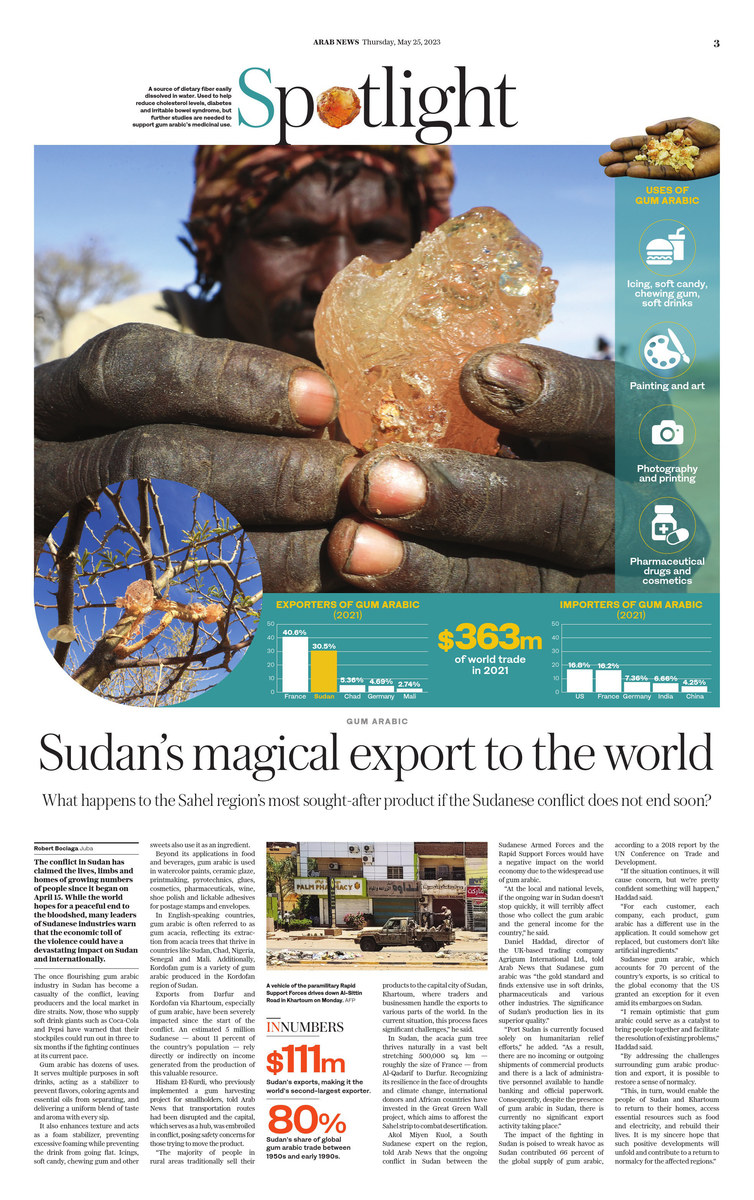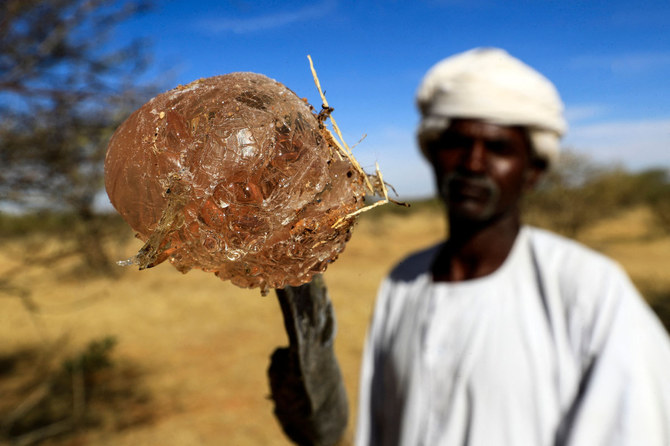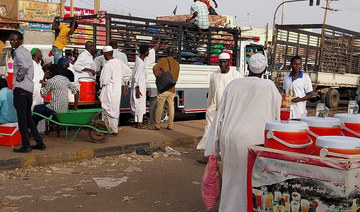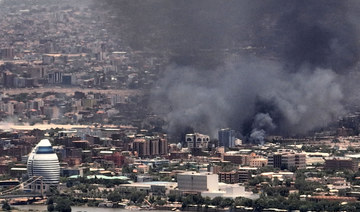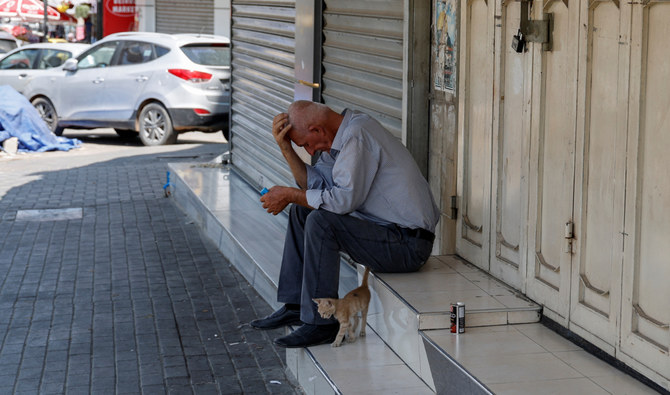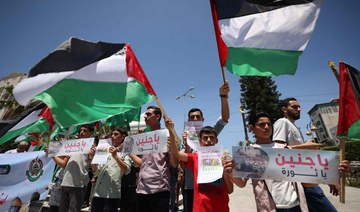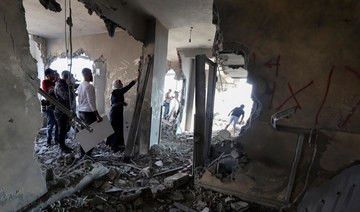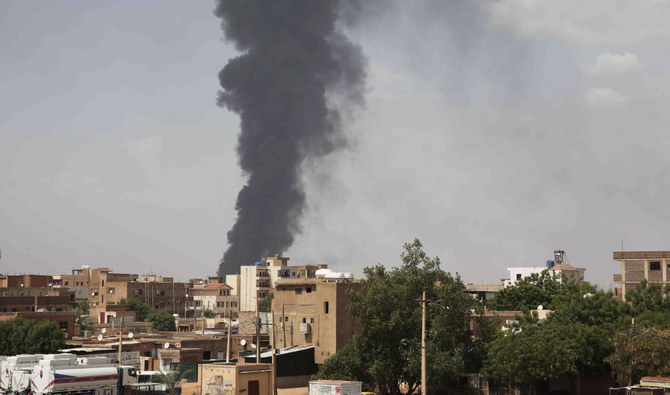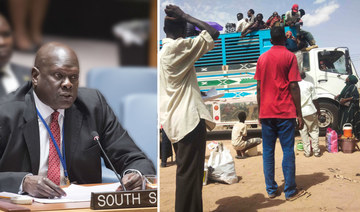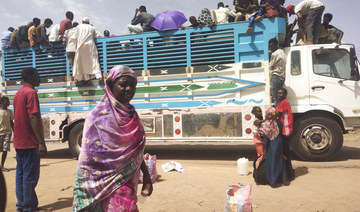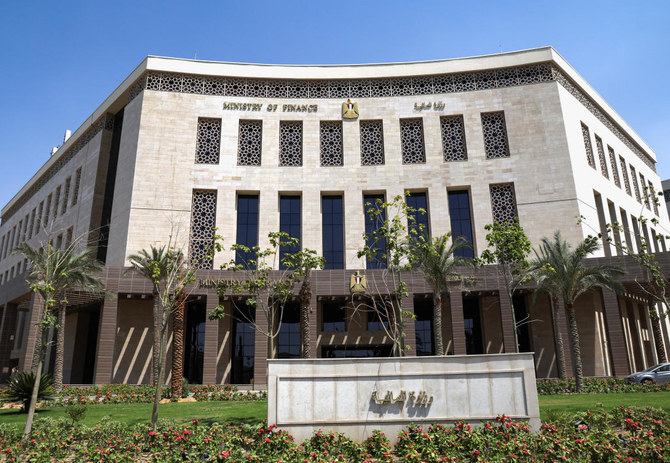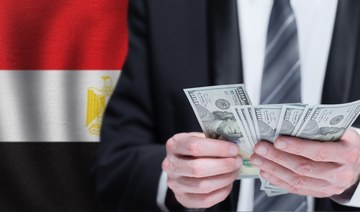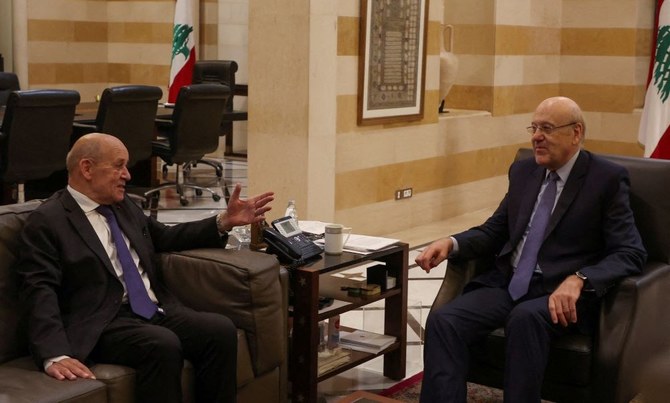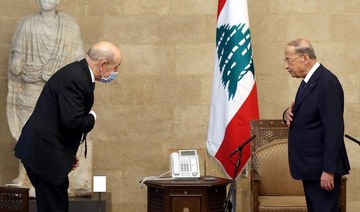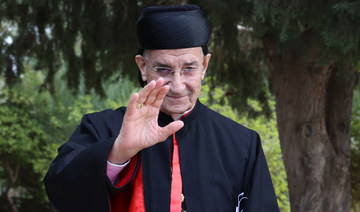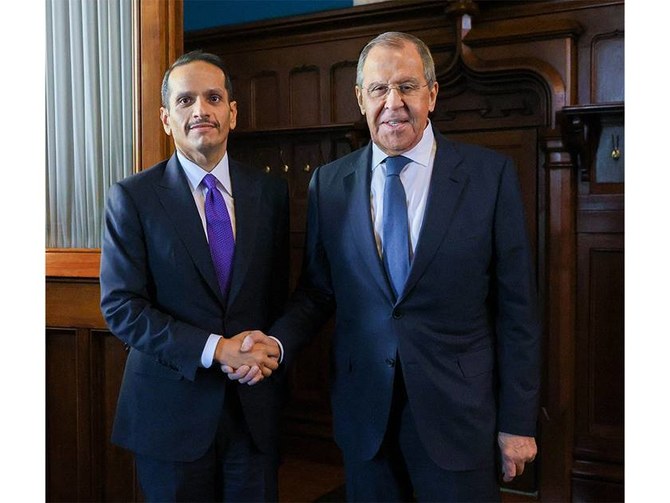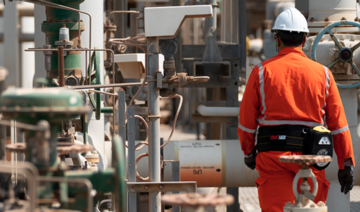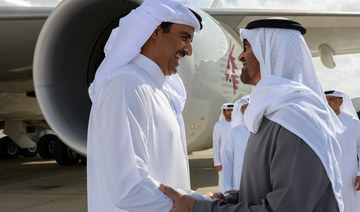JUBA, South Sudan: The conflict in Sudan has claimed the lives, limbs and homes of growing numbers of people since it began on April 15. While the world hopes for a peaceful end to the bloodshed, many leaders of Sudanese industries warn that the economic toll of the violence could have a devastating impact on Sudan and internationally.
The once flourishing gum arabic industry in Sudan has become a casualty of the conflict, leaving producers and the local market in dire straits. Now, those who supply soft drink giants such as Coca-Cola and Pepsi have warned that their stockpiles could run out in three to six months if the fighting continues at its current pace.
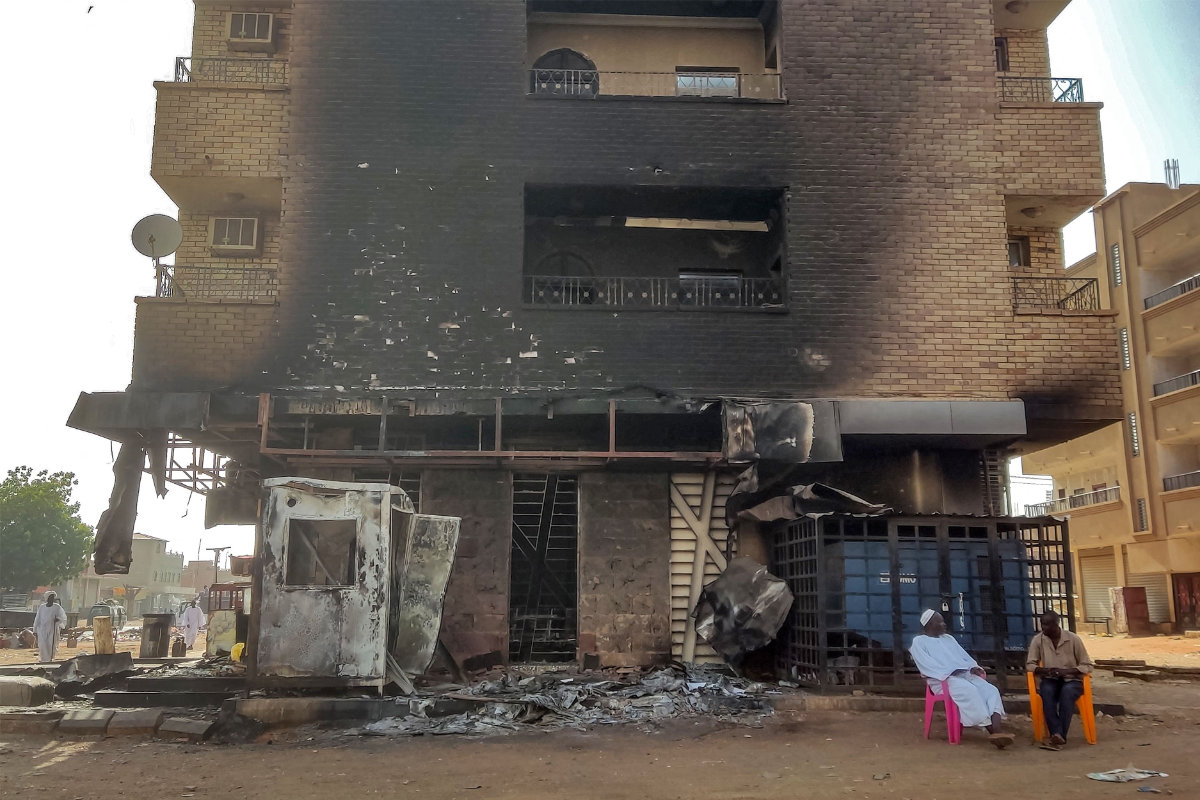
Men idle their time away outside a destroyed bank branch in Khartoum, casualty to the ongoing war between rival military factions in Sudan. (AFP)
Gum arabic has dozens of uses. It serves multiple purposes in soft drinks, acting as a stabilizer to prevent flavors, coloring agents and essential oils from separating, and delivering a uniform blend of taste and aroma with every sip.
It also enhances texture and acts as a foam stabilizer, preventing excessive foaming while preventing the drink from going flat. Icings, soft candy, chewing gum and other sweets also use it as an ingredient.
Beyond its applications in food and beverages, gum arabic is used in watercolor paints, ceramic glaze, printmaking, pyrotechnics, glues, cosmetics, pharmaceuticals, wine, shoe polish and lickable adhesives for postage stamps and envelopes.
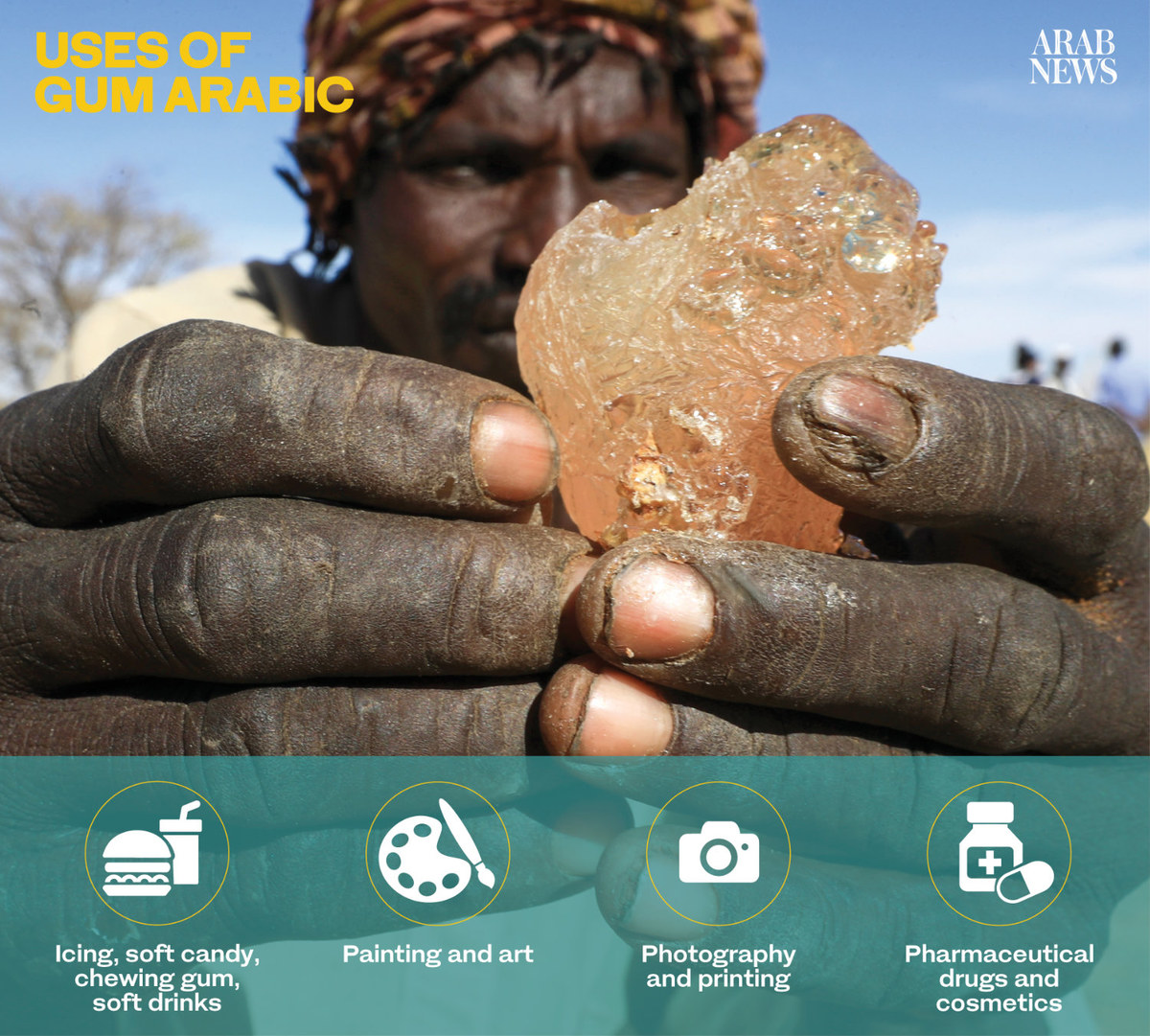
In English-speaking countries, gum arabic is often referred to as gum acacia, reflecting its extraction from acacia trees that thrive in countries like Sudan, Chad, Nigeria, Senegal and Mali. Additionally, Kordofan gum is a variety of gum arabic produced in the Kordofan region of Sudan.
Exports from Darfur and Kordofan via Khartoum, especially of gum arabic, have been severely impacted since the start of the conflict. An estimated 5 million Sudanese — about 11 percent of the country’s population — rely directly or indirectly on income generated from the production of this valuable resource.

Hisham El-Kurdi, who previously implemented a gum harvesting project for smallholders, told Arab News that transportation routes had been disrupted and the capital, which serves as a hub, was embroiled in conflict, posing safety concerns for those trying to move the product.
“The majority of people in rural areas traditionally sell their products to the capital city of Sudan, Khartoum, where traders and businessmen handle the exports to various parts of the world. In the current situation, this process faces significant challenges,” he said.
FASTFACTS
A natural gum, gum arabic is the exudate of some acacia species, notably acacia Senegal and acacia Seyal, found across Africa’s so-called gum arabic belt.
Gum arabic is one of Sudan’s primary export commodities, linking the country to international markets in Europe, Asia and North America, accounting for an estimated 15% of Sudan’s exports.
There are about 1m households or 5m people who are estimated to be either directly or indirectly dependent on the gum arabic sector.
Producers live in or near gum arabic production areas that include villages and forests and take responsibility for cultivating, tapping, collecting and protecting their acacia trees during harvest months between October and February following the rainy season.
In Sudan, the acacia gum tree thrives naturally in a vast belt stretching 500,000 sq. km — roughly the size of France — from Al-Qadarif to Darfur. Recognizing its resilience in the face of droughts and climate change, international donors and African countries have invested in the Great Green Wall project, which aims to afforest the Sahel strip to combat desertification.
Akol Miyen Kuol, a South Sudanese expert on the region, told Arab News that the ongoing conflict in Sudan between the Sudanese Armed Forces and the Rapid Support Forces would have a negative impact on the world economy due to the widespread use of gum arabic.
“At the local and national levels, if the ongoing war in Sudan doesn’t stop quickly, it will terribly affect those who collect the gum arabic and the general income for the country,” he said.
Daniel Haddad, director of the UK-based trading company Agrigum International Ltd., told Arab News that Sudanese gum arabic was “the gold standard and finds extensive use in soft drinks, pharmaceuticals and various other industries. The significance of Sudan’s production lies in its superior quality.”
“Port Sudan is currently focused solely on humanitarian relief efforts,” he added. “As a result, there are no incoming or outgoing shipments of commercial products and there is a lack of administrative personnel available to handle banking and official paperwork. Consequently, despite the presence of gum arabic in Sudan, there is currently no significant export activity taking place.”
The impact of the fighting in Sudan is poised to wreak havoc as Sudan contributed 66 percent of the global supply of gum arabic, according to a 2018 report by the UN Conference on Trade and Development.
INNUMBERS
$111m Sudan’s exports, making it the world’s second-largest exporter.
88,000 tons Total export of raw gum in 2021.
80% Sudan’s share of global gum arabic trade between 1950s and early 1990s.
70% Sudanese exporters’ share of global gum arabic supply.
25,000 tons Average annual Sudanese gum arabic exports.
50,000 tons Average amount of exports in the 1950s and 1960s.
$10m Value of FAO-financed Sudan’s forestry project to support gum arabic farmers, protect trees.
“If the situation continues, it will cause concern, but we’re pretty confident something will happen,” Haddad said.
“For each customer, each company, each product, gum arabic has a different use in the application. It could somehow get replaced, but customers don’t like artificial ingredients.”
Sudanese gum arabic, which accounts for 70 percent of the country’s exports, is so critical to the global economy that the US granted an exception for it even amid its embargoes on Sudan.
“I remain optimistic that gum arabic could serve as a catalyst to bring people together and facilitate the resolution of existing problems,” Haddad said.
“By addressing the challenges surrounding gum arabic production and export, it is possible to restore a sense of normalcy.
“This, in turn, would enable the people of Sudan and Khartoum to return to their homes, access essential resources such as food and electricity, and rebuild their lives. It is my sincere hope that such positive developments will unfold and contribute to a return to normalcy for the affected regions.”
